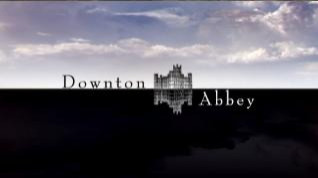'Downton Abbey' Creator Defends Controversial Rape Scene In Series 4, Episode 3

“Downton Abbey” creator Julian Fellowes has come under fire for a controversial storyline in the latest episode of the period English drama, though Fellowes defended the plot point in a Tuesday interview with the BBC.
[Note: spoilers for Sunday night’s “Downton Abbey,” which has not aired in the United States, follow]
Episode three of “Downton Abbey” series four, which has not yet been broadcast in America, features what Telegraph critic Ben Lawrence calls “the most devastating scene in the series’ three-year history.” In the episode, fan-favorite character Anna May Bates is attacked and, it is implied, raped by an untoward guest (played by Nigel Harman) while residents at the mansion are distracted by a visiting singer.
Fans have reacted strongly to the scene, with many stating that the rape was unnecessary and exploitive. Fellowes, on the other hand, argues that the scene was designed to avoid any explicit scenes of sexual violence.
"If we'd wanted a sensational rape we could have stayed down in the kitchen with the camera during the whole thing and wrung it out,” Fellowes told the BBC. "The point of our handling is not that we're interested in sensationalising but we're interested in exploring the mental damage and the emotional damage.”
Fellowes was also adamant the scene would have a major impact on Anna and her husband Bates.
"Downton deals in subjecting a couple of characters per series to a very difficult situation and you get the emotions that come out of these traumas,” Fellowes said.
"All of this is about taking characters to the brink. We know Anna is a strong personality but it doesn't mean she will be able to be strong through this. The whole rest of the series, for her story and for Bates' story, is seeing how she negotiates her way through this. I don't think we ever have a sense that she leaves it behind.”
Joanne Froggatt, who plays Anna May Bates, has also defended the episode, telling the BBC that the scene was all in service of exploring the limits of her character.
"I was really proud of the show for tackling a subject like this ... I really do believe that Julian's [Fellowes] written that in a way that is not gratuitous at all, he does very much go on to explore the emotional journey of Anna and Bates," Froggatt said. "He's done a beautiful job of hitting the right note with it. I think we all just felt a big responsibility to get it right."
Froggatt also claimed that the episode was necessary to explore women’s issues in the early 20th century. She says that 100 years ago, women were often too afraid to tell the police about sexual assault due to fear of being shamed publicly.
"There was still such a stigma attached to any kind of attack like this that you were very much in danger of losing all of that," Froggatt said. "And if a woman lost her reputation that would bring shame upon the house, she could lose her job, she could lose her husband. And society still saw it as no smoke without fire, 'well he's only a man - he couldn't help himself.'"
© Copyright IBTimes 2024. All rights reserved.












